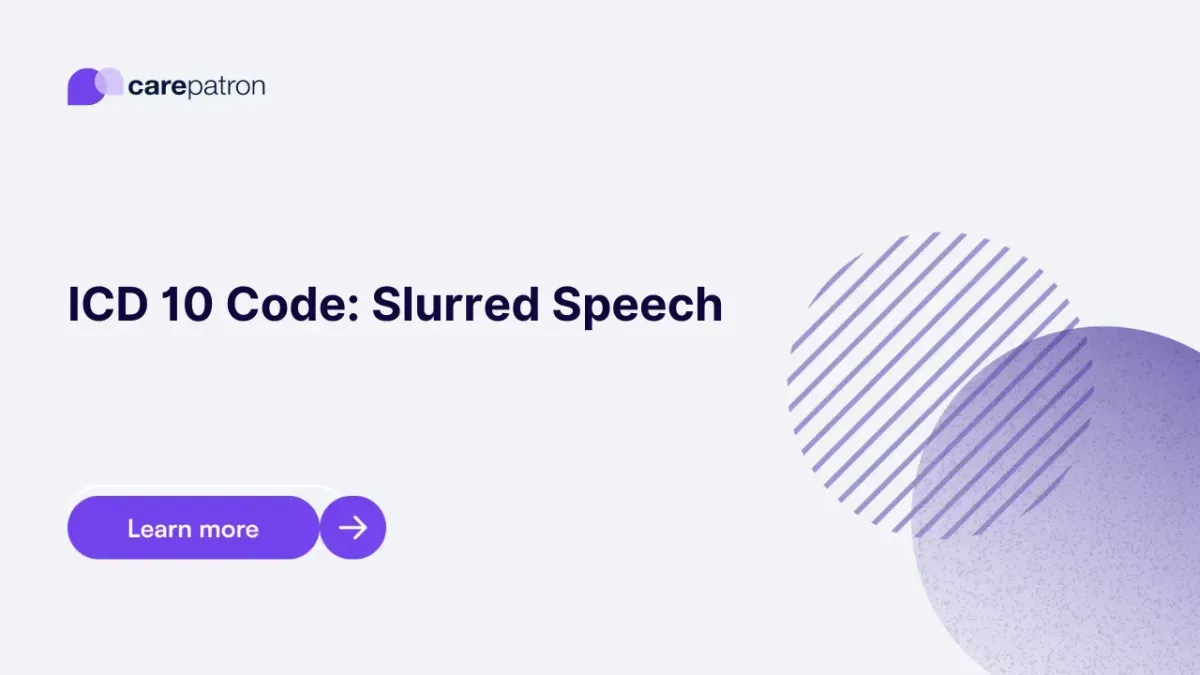
Slurred Speech ICD-10-CM Codes | 2023
Read this short guide to learn about Slurred Speech ICD codes you can use!
Use Code
Commonly asked questions
It depends on the cause. If it’s caused by fatigue, resting and regaining energy should solve it. If it’s caused by alcoholic consumption or drug use, their speech should return after they’re no longer intoxicated.
If a speech or neurological disorder causes it, the person should take speech therapy to help improve the clarity and articulation of their speech. Their underlying condition must also be managed.
To diagnose slurred speech, a healthcare professional will examine, observe, and assess a person’s voice, breathing, and ability to move the face, lips, and tongue. They might also conduct blood, urine, and imaging tests to determine or rule out underlying causes.
The complications it’ll lead to are not medical. Slurred speech can impact relationships and mental health because they will have difficulty communicating with their loved ones, friends, colleagues, and more. This might impact their home, school, and/or work lives. They might also become depressed and anxious.
EHR and practice management software
Get started for free
*No credit card required
Free
$0/usd
Unlimited clients
Telehealth
1GB of storage
Client portal text
Automated billing and online payments
